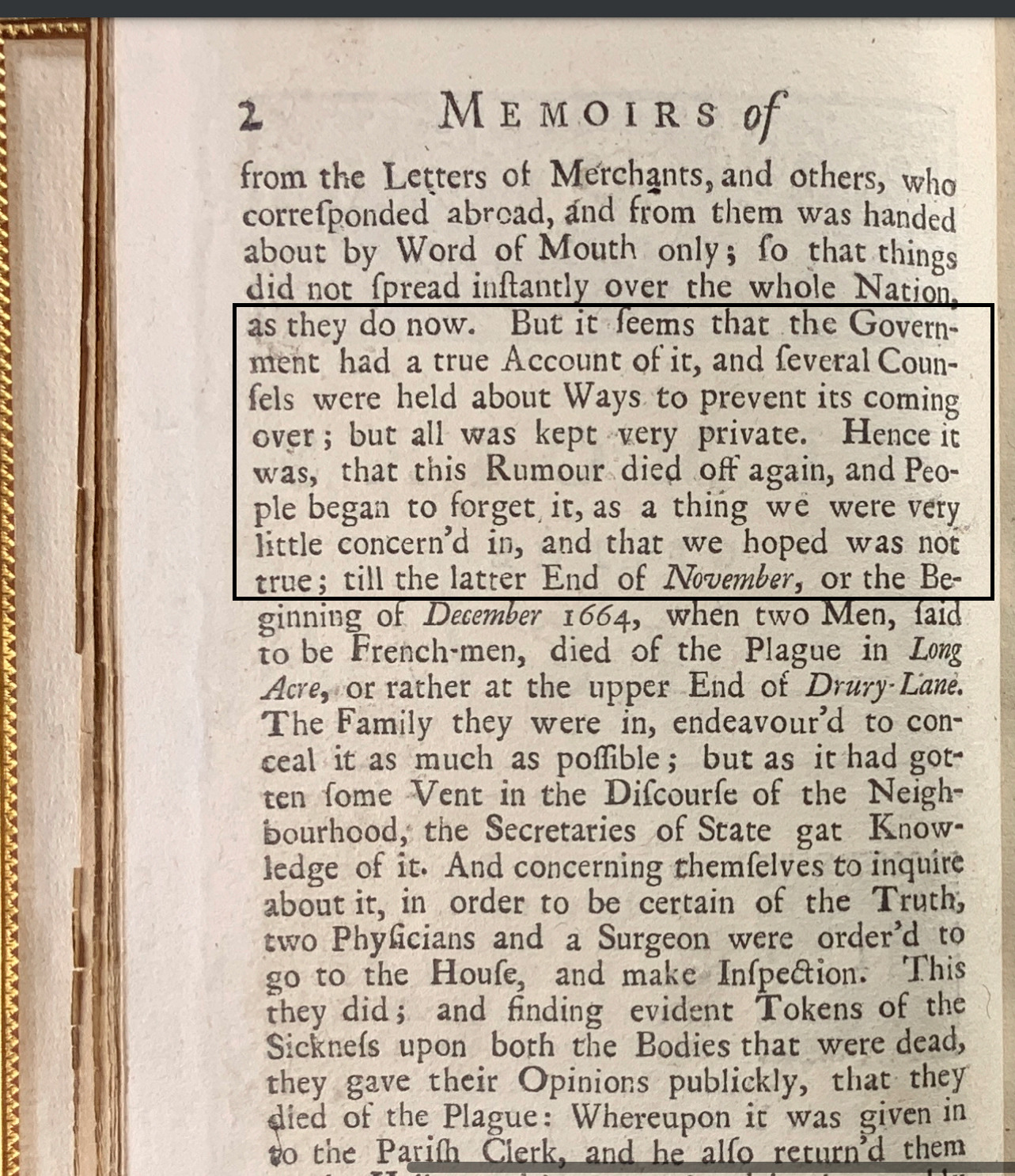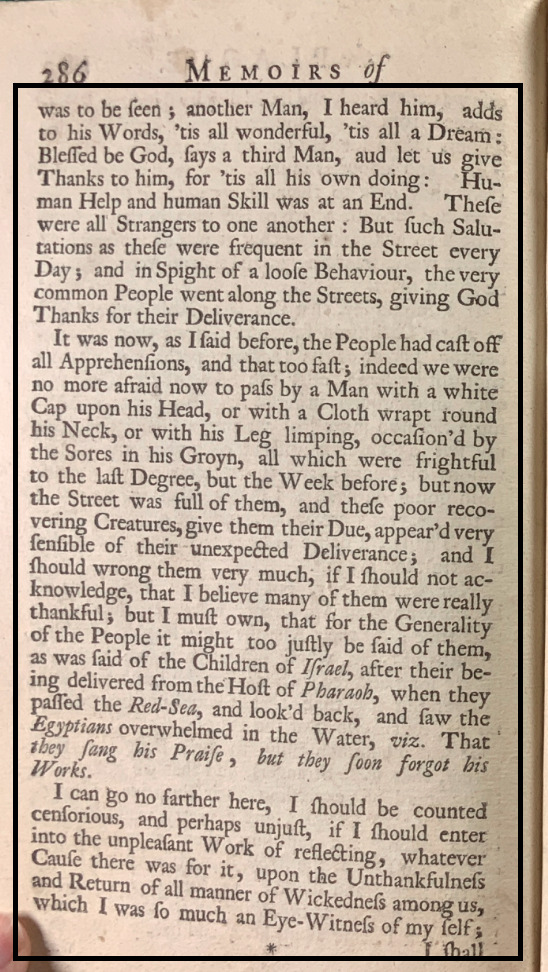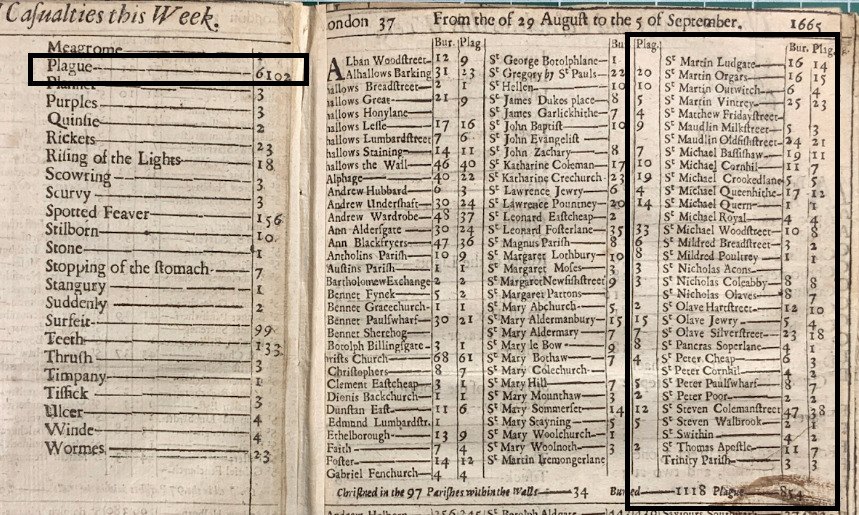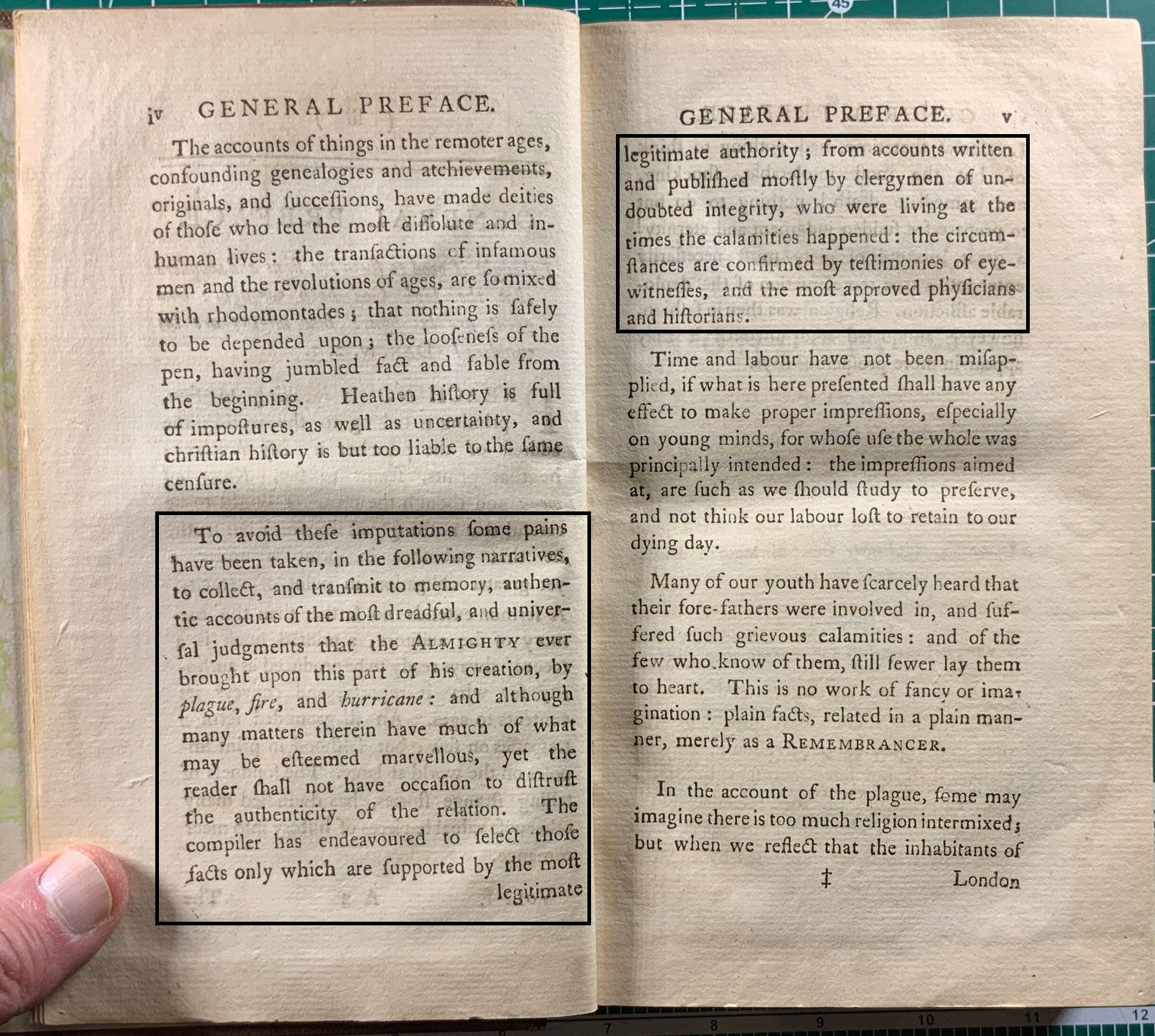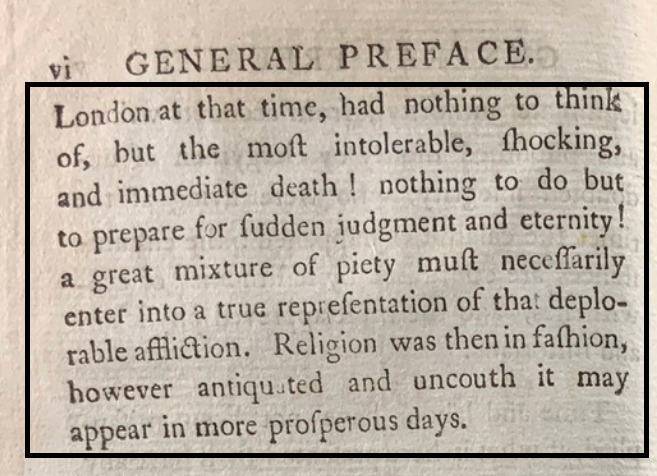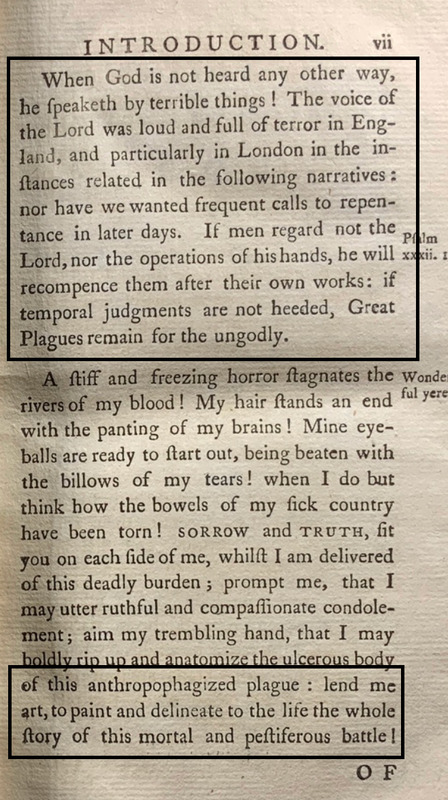“The plague is very terrible!” - Historical Accounts of the Plague
Although the horrors of the Plague of 1665 were devastating, people still felt a duty to preserve the historical event for future generations. The way different sources discuss the plague gives an idea of the perception of the plague at the time. This page is intended to provide the context required for later analysis of the scientific method.
The author of this text highlights the changes pr esent due to the transition of power. Cromwell ruled England as a Republican Commonwealth, and Charles II ruled in the traditional style of monarchy. The shock therapy from abruptly transitioning from one to the other caused a lot of turmoil. One result was decreased transparency of the monarchist government compared to the republic. This lack of transparency contributed to the distrust of the Government. Furthermore, the Government receiving information about a possible resurfacing of the plague, and witholding it from the people – in traditional monarch-style – resulted in a delay of any precautionary measures that could have been taken during the time.
esent due to the transition of power. Cromwell ruled England as a Republican Commonwealth, and Charles II ruled in the traditional style of monarchy. The shock therapy from abruptly transitioning from one to the other caused a lot of turmoil. One result was decreased transparency of the monarchist government compared to the republic. This lack of transparency contributed to the distrust of the Government. Furthermore, the Government receiving information about a possible resurfacing of the plague, and witholding it from the people – in traditional monarch-style – resulted in a delay of any precautionary measures that could have been taken during the time.
King Charles II, the sucessor to the Cromwells
London Citizens were trying to justify what happened to them through the lens of God. During the plague people believed it was a punishment from God, and as the text shows, when it ended they believed that was God's doing as well. "...another Man, I heard him, adds to his Words, tis all wonderful, tis all a dream; Blessed be God, says a third man, aud let us give thanks to Him, for tis all His own doing." The author himself verbalizes a certain level of cynicism, and a belief that the plague was a result of forgetting God's power. People compared those inflicted with the plague to the jews after they escaped Egypt, which implied a religious duty to pity and help them. This comparison represents a safety in past religious history: if you act as the Jews acted, you will be treated by God as the Jews were. It also emphasizes how ingrained the religious justification of the plague was because even the aftermath was compared to the aftermath of the Mass Exodus
Moses parts the Red Sea to help the Jews escape Egypt in the 1956 feature film "The Ten Commandments."
There was an incredibly large number of deaths that people had to comprehend , with the highest being about 6,102 people dying of the plague in one week. The total deaths were recorded as 68,596, but believed to be over 100,000 (National Archives) when the undocumented deaths were included. Overall the plague wiped out about 15% of the population of England. Psychologically, it makes sense why people would crave a reason for such an almost incomprehensible about of deaths, and turn to religion. Religion also makes sense because it had historically been utilized to justify inexplained phenomena, from lightning to the Red Sea. It also has a specific relationship with plague, because one of the first recorded plagues in Egypt was the collection of "Ten Plagues" Moses released onto the Pharoah's people in the bible. Furthermore, the sixth plague in that collection was described as "boils," a symptom very present in the plague of 1665. It would make sense then, that the author of the previous document believed it was punishment for turning away from god, because it was the first time in Egypt.
This highlights the emergence of the scientific method, and it’s role of religion in it. The City Remembrancer is about the accounts of the various wraths of God in the 1660’s, but the author feels compelled to write this paragraph describing his process, and methods of data collection. This demonstrates an increasing demand for proof of validity, possibly as a result of the emergence of the scientific method. The author implies that his book is accurate because he only used the accounts of clergymen, which were verified by physicians and historians. It is interesting how the accounts of clergymen carried enough trust to be mentioned as proof of validity in describing ones methods. It can be inferred that this is due to the clergymen's strict adherence to Christian commandments and values, which would make them more reliable witnesses. That being said, it is also interesting that the clergymen accounts needed to be verified by historians and physicians. This is a prime exanple of the changing perception of Religion, even in a religious text such as this.
The last sentence emphasizes the perception of Christiantiy, specifically Puritanism, in 1769. The opinions are very different despite being only a century after the events of the Plague of 1665. The author makes it clear that he views religion as a type of fashion that was more "in" in 1665, and more "out" in the current world. It is possible that the plague catalyzed this change. It wreaked mass destruction that could have been alleviated by a more proper understanding of the plague, which caused survivors to have a heavy emphasis on science. Furthermore, the sheer amount of devastation could cause some people to lose their religion if they felt that it was an unfair punishment for their followings. The churches were also some of the heavier hit areas, as described in "Plague Journal," which would contradict the belief that God was punishing nonbelievers because his believers were getting infected, and killed, in higher numbers.
This is another example of a survivor of the plague justifying the death and destruction through religion. When the author says "If men regard not the Lord, nor the operation of his hands, he will recompense them after their own works," he is most likely referring to the men who were part of the parliament that invited the secular King Charles II back into power. It is understandable how London citizens believed the plague had religious roots because the distrust of the government described in "A Journal of the Plague," combined with how King Charles II's reign coincided with the entry of the plague in London. Furthermore, it would logically make sense that the plague was a punishment for secularity, because the Plagues in the Old Testament were punishment to the Pharoah – essentially the Egyptian government – for failing to address the Jew's Christian God. Therefore the plague being a punishment for Londons building secularity would complete the almost perfect biblical parallel.
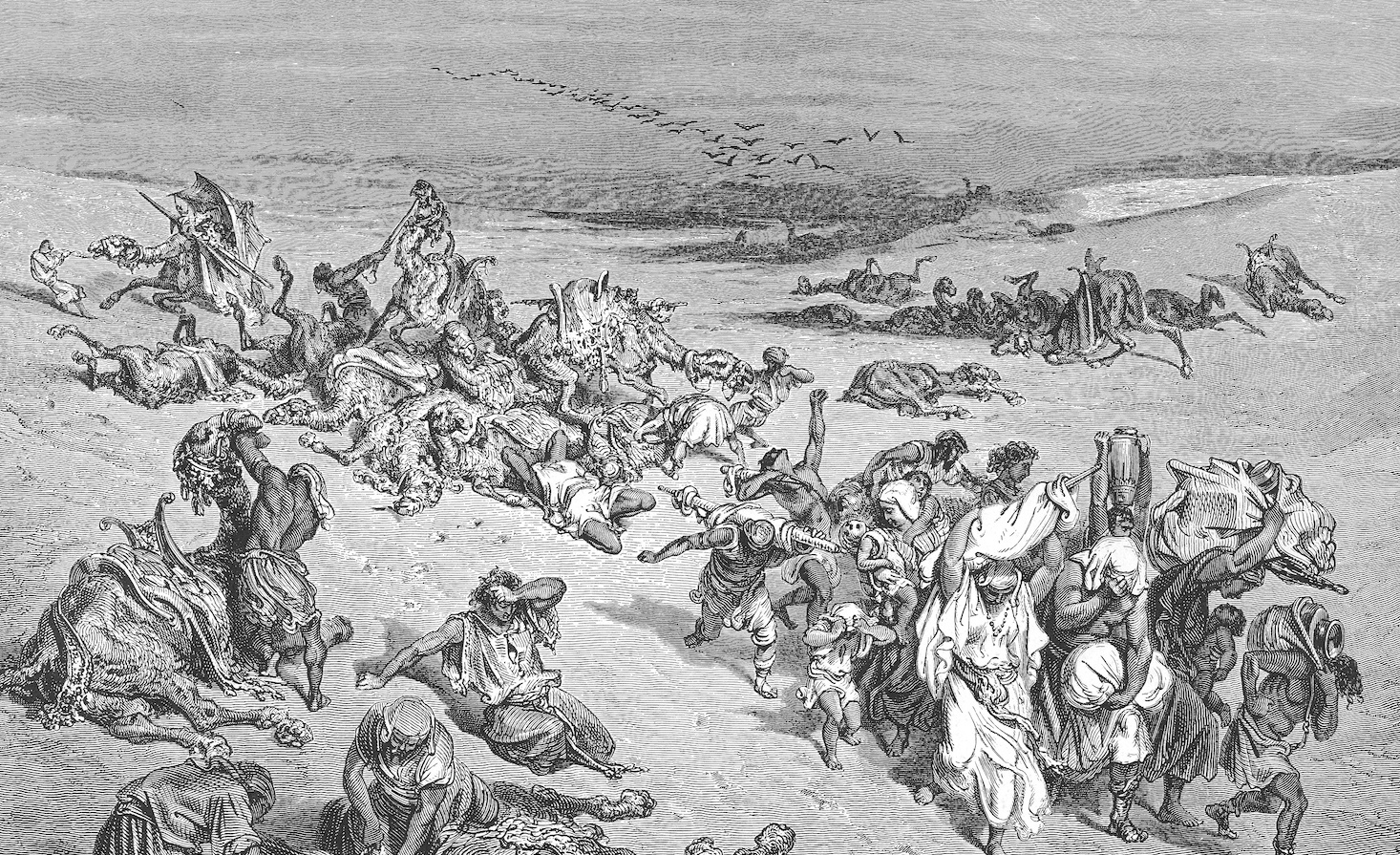 An artistic depiction of the ten plagues of Egypt.
An artistic depiction of the ten plagues of Egypt.
As has been shown, the Plague of 1665 had devastating consequences that Londoners justified through the lens of Christianity. However, that justification didn't remove the dire need for a cure. The next section describes various remedies of the time for the Plague.
